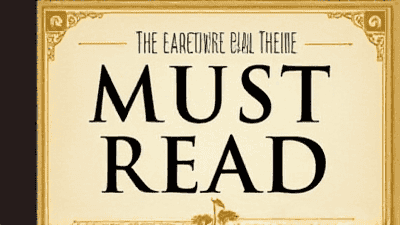
When discussing modern television masterpieces, two names inevitably rise to the top: Breaking Bad and Better Call Saul. Created by Vince Gilligan, these two series have redefined what it means to tell a compelling story, building rich characters and weaving complex narratives. Breaking Bad, which aired from 2008 to 2013, chronicles the transformation of Walter White from a high school chemistry teacher to a drug kingpin. In contrast, Better Call Saul serves as a prequel, exploring the life of Jimmy McGill before he adopts the identity of Saul Goodman, the morally flexible lawyer introduced in Breaking Bad.
The Genesis of Breaking Bad
The Concept and Creation
Breaking Bad was conceived by Vince Gilligan as a way to explore the transformation of a character over time. The core premise revolves around Walter White, played by Bryan Cranston, who turns to manufacturing methamphetamine after being diagnosed with terminal cancer. The show's tagline, "I am not in danger, Skyler. I am the danger," perfectly encapsulates Walter's journey from a mild-mannered teacher to a ruthless drug lord.
Gilligan’s vision was to portray a man whose descent into moral depravity is gradual yet shocking. The idea of a character breaking bad was appealing to him, and he integrated this concept into the very fabric of the series. The show was well-received for its writing, direction, and performances, particularly Cranston’s, which earned him multiple Emmy awards.
The Impact of Breaking Bad
Upon its release, Breaking Bad quickly garnered critical acclaim and a dedicated fanbase. It reshaped the landscape of cable television, elevating genre standards and showcasing the potential of long-form storytelling. The series was applauded for its meticulous attention to detail, character arcs, and cinematography.
Breaking Bad's influence extended beyond ratings and awards; it became a cultural touchstone. Iconic moments and quotes from the series have permeated popular culture, and the series finale is often cited as one of the best conclusions in television history.
The Birth of Better Call Saul

From Side Character to Lead
Better Call Saul emerged from the success of Breaking Bad, but it was not merely a spinoff; it was an intricate exploration of one of its most beloved characters, Saul Goodman, portrayed by Bob Odenkirk. The series began airing in 2015 and was met with immediate enthusiasm from fans eager to see the backstory of the fast-talking lawyer.
The show offers a deep dive into the life of Jimmy McGill, focusing on his struggles as a con artist trying to become a reputable lawyer while grappling with his own moral dilemmas. The transformation of Jimmy into Saul is gradual, allowing viewers to witness the slow erosion of his ethics.
The Artistic Approach of Better Call Saul
Better Call Saul differs from Breaking Bad in its pacing and tone. The prequel embraces a slower narrative, allowing for richer character development and exploration of themes like identity, morality, and redemption. The series utilizes clever storytelling techniques, including visual motifs and striking cinematography, to evoke emotions and convey deeper meanings.
The show’s commitment to its characters is evident in the way it weaves their pasts into the present narrative, creating a tapestry that is both complex and engaging. Audiences are drawn into Jimmy's journey and the moral ambiguity that defines his choices.
Character Development: Walter White vs. Jimmy McGill
The Transformation of Walter White
Walter White's transformation is one of the most compelling character arcs in television history. Over five seasons, viewers witness his evolution from a sympathetic figure to a feared and powerful drug lord. The shifts in his personality reflect his internal struggles and the external pressures that drive him.
Throughout Breaking Bad, Walter's motivations become increasingly selfish. Initially, he seeks to secure his family’s financial future, but as the series progresses, his actions become more calculated and ruthless. This transformation challenges viewers' perceptions of morality and raises questions about the nature of good and evil.
The Complexity of Jimmy McGill
In contrast, Jimmy McGill's character arc in Better Call Saul is more nuanced and layered. Jimmy is not a villain in the traditional sense; rather, he embodies the struggle of a flawed individual seeking acceptance and success within a corrupt system. His charm, humor, and intelligence make him a relatable character, despite his ethical lapses.
Better Call Saul explores Jimmy's relationships, particularly with his brother Chuck and girlfriend Kim Wexler, highlighting the emotional stakes involved in his choices. Unlike Walter, whose descent into darkness is marked by violence and manipulation, Jimmy's journey is characterized by moral ambiguity and a longing for belonging.
Thematic Depth: Crime, Morality, and Identity

Breaking Bad: The Consequences of Crime
Breaking Bad delves into the consequences of crime, examining the impact of Walter White's decisions on his family, friends, and those around him. The series poses profound questions about the nature of morality, challenging viewers to consider whether the ends justify the means. Walter’s descent into the criminal underworld and the subsequent fallout creates a tense narrative that keeps audiences on the edge of their seats.
The show also explores themes of masculinity, power, and the American Dream. Walter's transformation is, in many ways, a reflection of a societal desire for success, illustrating how ambition can lead to destruction when morality is abandoned.
Better Call Saul: Identity and Redemption
Better Call Saul shifts the focus to themes of identity and redemption. Jimmy’s journey is one of self-discovery as he grapples with his past and the choices that define him. The series examines how one’s environment and relationships shape personal identity, particularly through the lens of familial expectations and societal pressures.
Additionally, Better Call Saul emphasizes the concept of redemption, as Jimmy frequently finds himself at a crossroads between right and wrong. His internal struggle highlights the complexity of human nature and the delicate balance between ambition and integrity.
Cinematic Techniques: Style and Storytelling
Breaking Bad: Visual Storytelling
Breaking Bad is renowned for its innovative visual storytelling. The series utilizes striking cinematography, clever framing, and vibrant color palettes to enhance the narrative. Each season features distinct visual motifs that reflect Walter's transformation and the descent into the drug world.
For example, the contrast between bright and dark colors represents the duality of Walter's character. The use of symbolism is prevalent throughout the series, enhancing the storytelling without relying solely on dialogue.
Better Call Saul: Subtlety and Nuance
Better Call Saul employs a different artistic approach, focusing on subtlety and nuance. The series often plays with pacing, allowing moments of silence and contemplation that amplify the emotional weight of scenes. The cinematography is meticulously crafted, using composition and lighting to create a distinct atmosphere that reflects Jimmy's internal conflicts.
Dialogue in Better Call Saul is particularly noteworthy, as it captures the witty, fast-paced banter characteristic of Jimmy's personality. The writing balances humor and drama, creating a multifaceted narrative that invites viewers to engage deeply with the characters.
Cultural Impact: Breaking Barriers in Television

The Phenomenon of Breaking Bad
Breaking Bad's influence extends far beyond its initial run. The series has inspired countless parodies, merchandise, and fan theories, solidifying its place in popular culture. Iconic phrases, such as "Say my name," and memorable images, like the pink teddy bear in the pool, have become entrenched in the public consciousness.
The show's success has led to extended discussions about the morality of its characters, as well as the portrayal of antiheroes in media. Breaking Bad marked a shift in television storytelling, paving the way for complex narratives and characters in future shows.
Better Call Saul's Growing Legacy
While Better Call Saul has yet to reach the same iconic status as Breaking Bad, it has carved its own niche within the cultural landscape. The series has received critical acclaim for its writing, character depth, and storytelling approach. It has sparked discussions about the nature of success, ambition, and ethics in a world driven by money and power.
Better Call Saul’s impact is evident in its ability to maintain the engagement of audiences several years after the premiere of its predecessor. The show has garnered numerous awards and nominations, solidifying its place as a worthy companion to Breaking Bad.
Conclusion: Which Masterpiece Reigns Supreme?
The debate over whether Breaking Bad or Better Call Saul reigns supreme ultimately comes down to personal preference. Breaking Bad is a complete narrative that showcases the transformation of Walter White and the consequences of crime, while Better Call Saul offers a more intricate exploration of character and moral ambiguity.
Breaking Bad is lauded for its groundbreaking storytelling and impact on television as a whole. It presents a powerful, thrilling narrative filled with suspense and drama. Meanwhile, Better Call Saul represents the evolution of storytelling, focusing on the subtleties of character development and relationships.
Both series are masterpieces in their own right, and neither can overshadow the other completely. They complement each other, offering fans a rich, expansive universe where characters are interwoven, and themes resonate deeply. As Vince Gilligan continues to craft powerful narratives, audiences can appreciate the unique contributions of both Breaking Bad and Better Call Saul.








